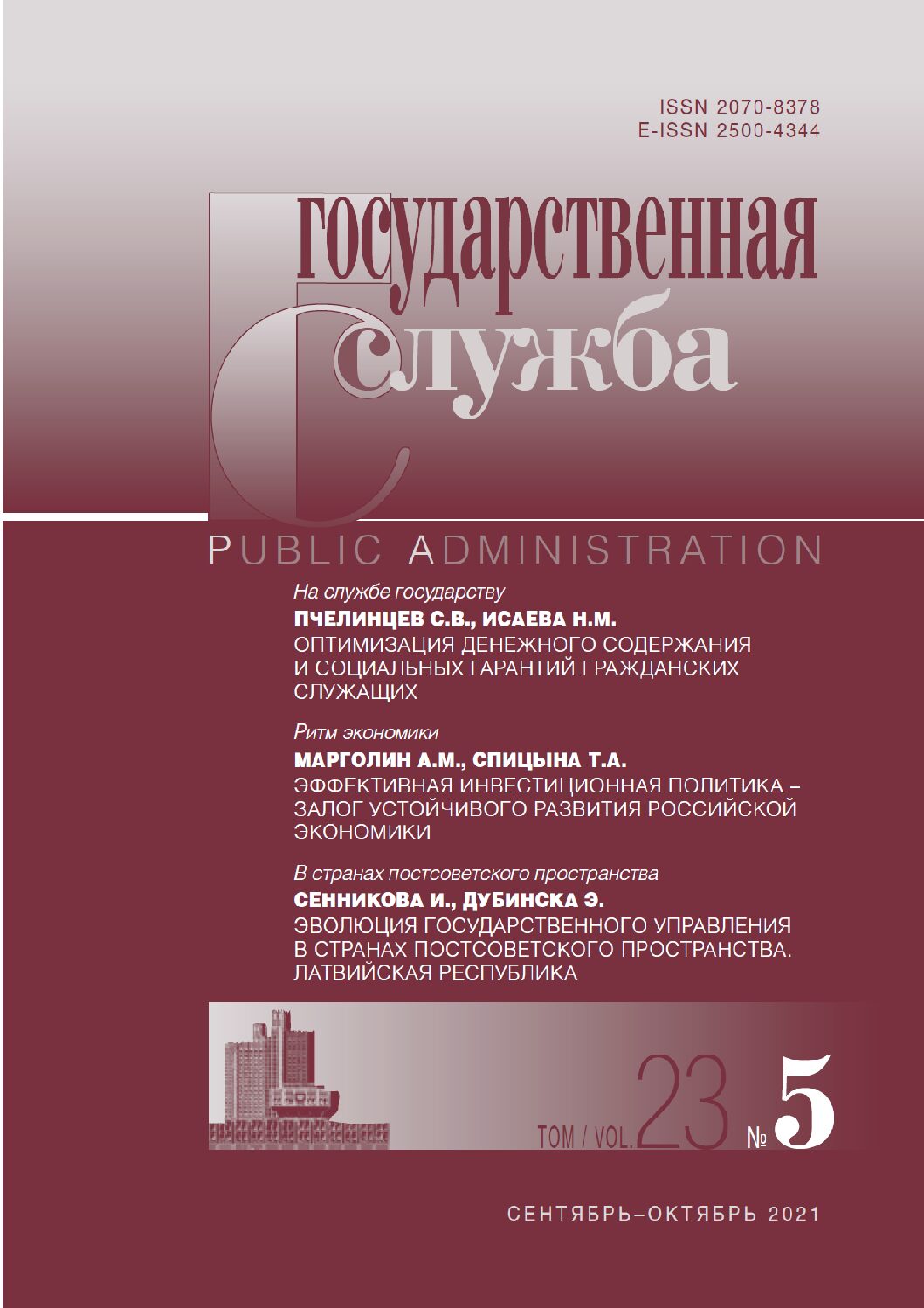Recommended link to article:
IGOR VLADISLAVOVICH PONKINа
аRussian Presidential Academy of National Economy and Public Administration
DOI: 10.22394/2070-8378-2021-23-5-47-52
Abstract:
The article studies the phenomenon and concept of the digital state. The author reveals the general concept and importance of digitalization in public administration. The article explains the problems of relevant interpretation and the limits of applicability of the concept to the system of public administration. The author considers methods, approaches, and prospects for improving the efficiency of public administration in the context of the digitalization of society and puts forward his concept for the term “digital government”. Using methods of analysis and synthesis, induction, deduction and abduction, classification, and formalization, the work reveals the essential descriptive characteristics of the phenomenon and concept of the digital state. After the data analysis, it is proposed to consider the concept of digital state in four interpretative definitions: as an ecosystem of multiservice and proactive state digital services; as an integrated computer and software meta-platform; as an organizational and technological approach and corresponding paradigm; and as a digital ontology of state-building and functioning, public administration and public policy. According to the author’s interpretation, the concept of the “digital state” includes: “digital government”, “digital democracy”, “digital justice”, “digital electoral technologies”, “digital public control of public administration”.
Keywords:
digital state, digitization in public administration, general theory of public administration, digital government, digital law
Received:
October 8, 2021
References:
Bartsits I.N. The constitutional right of the good (efficient) governance: criteria, indicators, evaluations. Konstitutsionnoye i munitsipalnoye pravo. 2013. No. 11. P. 64–71. In Russian
Davies R. eGovernment: Using technology to improve public services and democratic participation. – Brussels: European Parliamentary Research Service, 2015. P. 24. In English
Digital State: How the Internet is Changing Everything / Ed. by Simon Pont. London: Kogan Page, 2013. P. 241. In English
Korchagin R.N., Pankratov I.Yu. Possibility for applying the new public administration concept. Gosudarstvennaya sluzhba. 2013. No. 5. P. 18–21. In Russian
Müller V.C. What is a digital state? The 6th AISB Symposium on Computing and Philosophy: The Scandal of Computation – What is Computation? / Editors: Mark Bishop and Yasemin J. Erden. Exeter: University of Exeter, 2013. P. 11–16. In English
Pearce L. New Government, Digital Government: Managing the Transformation. Future Challenges for E-government. 2004. Discussion paper No. 20. P. 136–149. In English
Smeshko O.G., Ushakova E.V., Borisova T.A. Quality management of public and municipal services in the context of the digitalization of society. Ekonomika i upravleniye. 2019. No. 11. P. 4–13. In Russian
The OECD Digital Government Policy Framework: Six dimensions of a Digital Government (OECD Public Governance Policy Papers, No. 2) / OECD. Paris: OECD Publishing, 2020. P. 39. In English
Tomlinson J. Justice in the Digital State: Assessing the Next Revolution in Administrative Justice. Bristol: Policy Press, 2019. P. 99. In English
Ubaldi B., Le Fevre E.M., Petrucci E. et al. State of the art in the use of emerging technologies in the public sector (OECD Working Papers on Public Governance, No. 31). Paris: OECD Publishing, 2019. P. 74. In English
Articles in Open Access mode are published under the Creative Commons Attribution 4.0 International (CC BY) license.

